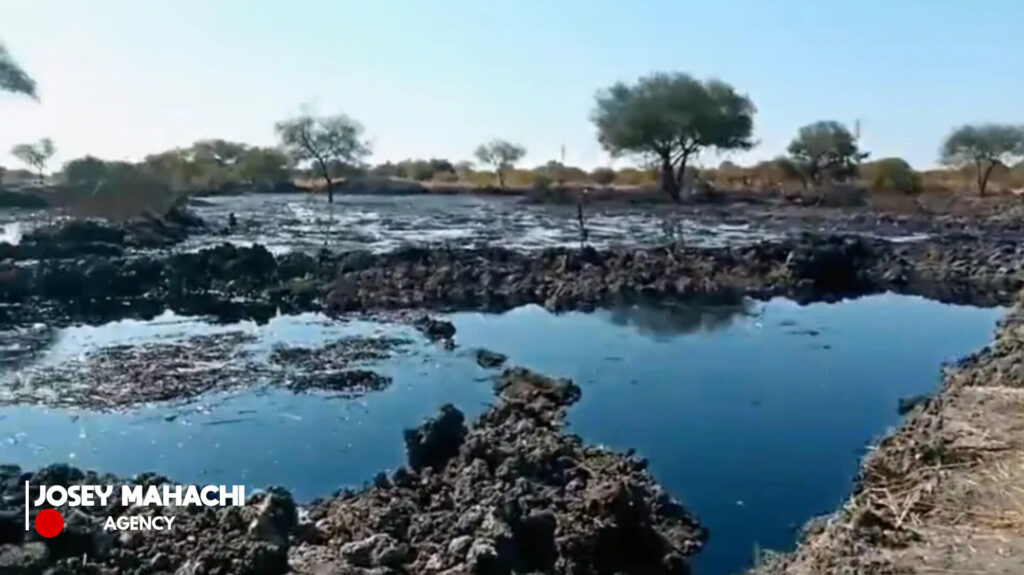By : Lloyd Mahachi
A devastating combination of climate-driven floods and oil pollution is threatening the lives of thousands in South Sudan’s Unity State. The region, already plagued by poverty and conflict, is now facing a silent killer: contaminated water. Herders in Roriak, a community raising cows in the heart of oil fields, are well aware of the dangers they face. “The water is dirty because this place has oil – it has chemicals in it,” says their chief, Chilhok Puot.
Nyatabah, a local woman, adds, “If you drink it, it makes you pant and cough. We know it’s bad water, but we don’t have anywhere else, we’re dying of thirst.” The community’s desperation is palpable, and their concerns are validated by former oil engineer David Bojo Leju. He has witnessed the catastrophic impact of oil spills and mismanaged facilities, describing the situation as a “disaster” and the pollution as a “silent killer” spreading across the state.
South Sudan, the world’s youngest country, is heavily dependent on oil revenue. However, the oil industry’s neglect has led to devastating consequences. Flooding, exacerbated by climate change, has submerged large areas of Unity State, washing pollution into water sources. Bojo Leju’s evidence, including photographs and videos, reveals the shocking extent of oil contamination. He recounts how spills from oil wells and pipelines were “a recurring situation” and how “produced water” – often containing hydrocarbons and pollutants – was not properly treated.
The consequences are dire. Cattle are dying, and birth defects are reported among humans. Health professionals fear pollution and lack of clean water are taking a toll on human health. Dr. Samuel Puot, a doctor in Bentiu, attributes congenital abnormalities to the consumption of contaminated water. Experts warn that environmental pollution can contribute to birth defects. Dr. Nicole Deziel, an environmental health specialist, emphasizes the need for systematic data collection to establish evidence.
The situation demands urgent attention. The South Sudanese government must prioritize the health and well-being of its citizens and address the oil industry’s neglect. International organizations should support efforts to provide clean water and healthcare. Systematic data collection is crucial to establish evidence of pollution’s impact on human health. The people of Unity State cannot wait any longer for action.
In the midst of this crisis, communities are struggling to survive. Charcoal sellers, like Nyeda, walk for hours to find work, leaving their children behind. “She has nothing either,” Nyeda says, wiping away tears. The lack of access to clean water and healthcare is a stark reality. Babies are born with abnormalities, and doctors are sounding the alarm.
The oil industry’s role in this crisis cannot be ignored. The government must hold companies accountable for their actions. The people of South Sudan deserve better. It is time for urgent action to address the toxic mix of oil and water, and ensure a safer, healthier future for all.
The international community must also play a role in supporting South Sudan’s efforts to address this crisis. Providing clean water, healthcare, and support for affected communities is crucial. The world cannot turn a blind eye to the suffering of the South Sudanese people. It is time for collective action to mitigate the devastating impact of oil pollution and climate change.
Ultimately, the people of Unity State are crying out for help. Their pleas must be heard, and their struggles must be addressed. The toxic mix of oil and water is a ticking time bomb, and it is only a matter of time before the situation spirals out of control.
Editor : Josephine Mahachi

